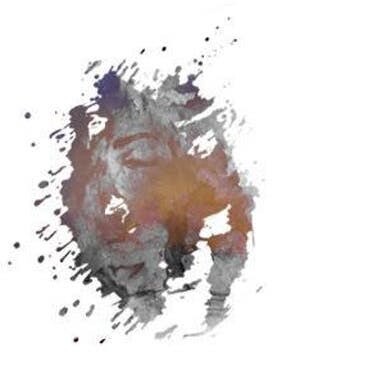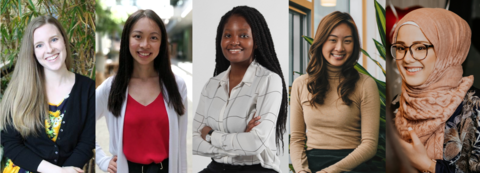Breadcrumbs
- Home
- MD/PhD Program
- News
- Students Organize Invisible Challenges In Medicine Conference
Students Organize Invisible Challenges In Medicine Conference


A team of MD students are organizing a one-day symposium, Invisible Challenges In Medicine, to expand the dialogue around mistreatment, discrimination, and allyship as well as to empower medical trainees with strategies to respond to microaggressions and discrimination in a clinical setting. The conference will feature keynote speakers, Dr. Nanky Rai and Chika Oriuwa, three interactive workshops highlighting unique challenges that trainees from equity-seeking groups face in healthcare, and a diverse panel of lived experiences. MD Program News spoke with the organizers, Grace Zhao (2T1), Semipe Oni (2T2), Claire Rollans (2T0), Laura Wong (2T0), Salwa Farooqi (2T1), about this event.
Why did you decide to organize this conference?
It is an unfortunate reality that many medical trainees still report facing issues of discrimination and mistreatment in clinical settings due to their race, ethnicity, gender, sexual orientation, religion, and disability (visible and invisible) to name a few. Mistreatment by faculty, residents, patients and even peers can have a major impact on medical students and their performance, with increased rates of burnout, particularly amongst those who experience recurrent mistreatment. Literature shows that while such mistreatment is prevalent, trainees often do not know how to respond to or deal with these situations. There are issues of power-dynamics, social acceptance and complacency towards the status quo that become challenging to resist against. Additionally, as medical students move forward in their training, they become further indoctrinated with the hidden curriculum, and may not even recognize certain forms of mistreatment or pass it off as “normal.”As it is not feasible to completely eradicate the discrimination faced by medical trainees, effective preparation is essential. While there are many diversity initiatives by the Faculty of Medicine, there has been a lack of discussion regarding the unique challenges that medical trainees in equity-seeking groups face in a clinical setting. As medical trainees become more diverse every year, it is imperative that we foster an inclusive and safe environment for the next generation of doctors, and provide tools for students to help them respond to mistreatment. This conference seeks to address the gap within the institutional medical curriculum to facilitate the skill development of a medical trainee in responding to negativity and learning to navigate their invisible challenges in a safe and productive way.
What challenges confront medical trainees from equity-seeking groups in clinical settings?
There are many unique challenges that medical trainees from equity-seeking groups can potentially face. For instance, they could face exclusion due to their appearance, microaggressions, and subtle forms of discrimination. Compounded by the power dynamics in health care, certain words and actions can have a lasting impact on a trainee’s career. For example, a surgeon can encourage a male medical student to consider surgery as a career, but caution the female medical student by saying something like “Have you thought about family planning? Maybe you should consider a less demanding specialty.” Another example is if a physician continues to misgender the student who identifies as either transgender, nonbinary, or gender nonconforming. With respect to religious views, a student who has to pray one to two times in the afternoon may have a preceptor who thinks that they prioritize religion over patient care. Not everyone is aware of such challenges, which is why we think it is important to have discussions about it and to find ways to respond in the moment that is professional and respectful.
How did you develop the content for this conference?
The team first collaborated together to discuss the current gaps in discussions around diversity, and how our conference could fill those gaps. We also did a poll of current medical trainees to learn what topics they felt were missing, or that they would be interested in exploring. We used this information to guide the major themes of the conference: mistreatment, allyship, and intersectionality. With guidance from the Diversity Strategist, Anita Balakrishna, the content of the workshops was then developed based on the team’s own experiences, the experiences of classmates and other students, and from input from a large group of stakeholders including faculty theme leads, Out in Medicine, BMSA, SJME, and others.
What can someone who attends this conference expect?
They can expect a day filled with interactive workshops that allows them to reflect on their own experiences of mistreatment as well as envision themselves in someone else’s life to understand some of the barriers that they may face. In addition, we will have two fantastic keynote speakers, Dr. Nanky Rai and Chika Stacy Oriuwa (2T0), as well as a panel of trainees and staff physicians who will be speaking on their lived experiences. Attendees will have the opportunity to actively engage in scenarios that highlight microaggression and verbal harassment in the medical environment, learn tangible steps on practicing allyship, and explore the challenges one may face as a visible/invisible minority. By having both student and faculty facilitators, we hope to foster a safe space to share vulnerable experiences with one another. We will be using the format of “Theatre of the Oppressed” in one of our workshops, where scenarios highlighting various forms of mistreatment will be acted out and members of the audience will be invited to interact with performers in order to promote social change. In doing so, attendees will be able to better understand how they themselves might respond if found in such a situation. The goal is to have attendees leave this conference feeling like they are better equipped to handle similar situations of mistreatment in the future.
What have your experiences been in clinical settings?
Claire: Overall, my experience at the University of Toronto has been excellent. For the most part, both my classmates and supervisors have been very supportive, inclusive, accepting, and aware of potential issues. I have been fortunate enough to never have experienced an incident of open discrimination in school or clinical settings. However, it is impossible to escape the small daily biases. I have been told not to go into urology by a tutor because it was “not a good specialty for women,” but that if I did, I should try pediatric urology. More than once on rounds I have been the only one to refer to a patient by the correct pronouns. I have been mistaken for a nurse countless times by patients, staff, and even residents on my team. Often this mistake will persist even after I explain that I’m a medical student. Many times I’ve had to awkwardly correct my supervisor after they assumed that my partner was male. All of these are small incidents, and none of them come from a place of malice. But together, they create a lingering feeling of being the “other.”
Semipe: The Faculty of Medicine at the University of Toronto has probably been the most inclusive post-secondary institution I have been privileged to belong to. As a Black female, pursuing a career in medicine, especially in Canada, didn’t always seem like an attainable goal. However, being surrounded by amazing Black female physicians at U of T has been proof that there’s enough room at the table for people who look like me. Unfortunately, this doesn’t entirely absolve me of the weight of being a minority in medicine. Prior to beginning medical school, I had heard countless stories and read several books about other medical students and physicians speaking out about their experiences as minorities in medicine. I inevitably knew I wasn’t going to escape all the challenges that come with being a minority in this field. However, I didn’t think I would have to face the reality of it so soon. During the first month of my first year in medical school, I got to interview a real patient on the ward for the first time. Myself and two colleagues, both caucasian and female, were to interview a patient in his 70s. The patient asked for the names of my two colleagues but ignored me completely. Afterward, he apologized and said he thought I was a nurse even though our tutor had introduced us as first-year medical students. We were all female, all dressed similarly, and the only difference was the colour of my skin. To be honest, I didn't know how to react in the moment. I felt hurt, confused, and frustrated. More importantly, however, I felt helpless. This is why I believe this conference is relevant now more than ever. As medical trainees, we already have so much work cut out for us, we should at least feel empowered to deal with situations like this, where we may be treated differently based on aspects of our identity beyond our control.
This conference is not just for students from equity-seeking groups, but all students. What’s the role of allyship in addressing systemic racism?
An ally is a person that wants to fight for the equality of a marginalized group that they’re not a part of. An ally does not remain silent but confronts racism and other forms of discrimination by challenging the oppressor’s way of thinking. However, this must be done in a way that does not speak over the marginalized person. As allyship is an ongoing process to be more conscious of the inequalities that occur in a community’s daily lives, the more people who are aware and are willing to learn and act, the more likely institutional racism can be eradicated.
Invisible Challenges In Medicine will be held on August 31 from 9:30 am to 4 pm at U of T's Multi-Faith Centre (569 Spadina Ave). Registeration information is available online.